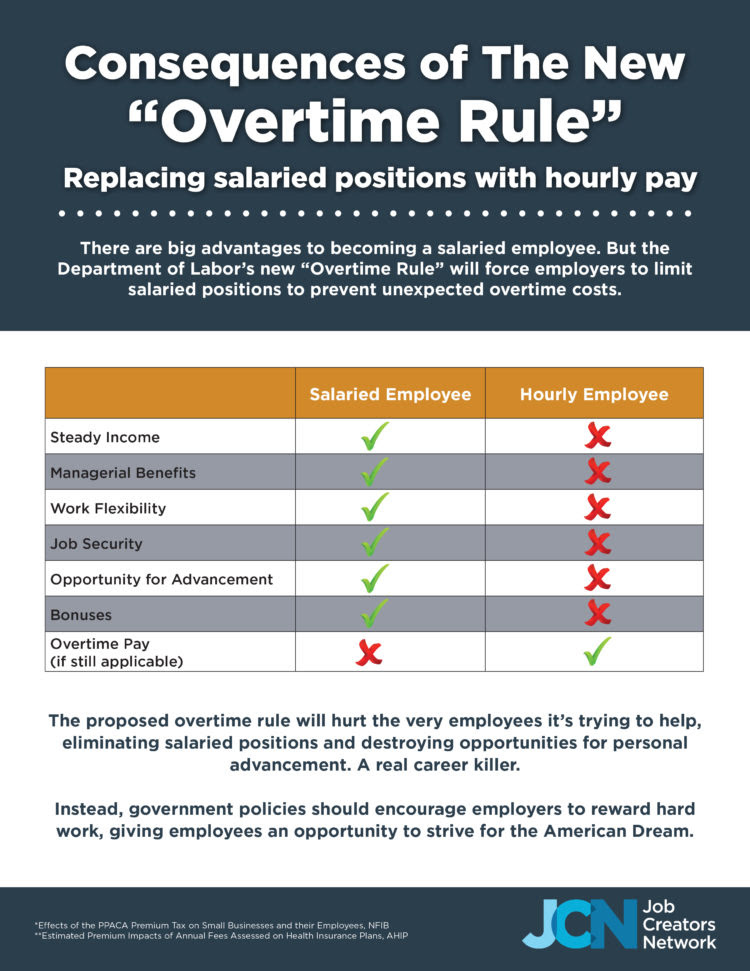The Department of Labor’s overtime rule goes into effect on December 1st. As we’ve pointed out before, it would make more employees eligible for overtime pay by raising the eligibility threshold to employees making $47,500 per year or less—up from $23,600 a year now.
Unfortunately, increasing the overtime threshold comes with many unintended consequences. The rule would hike labor costs and make employees more expensive to retain, leading to layoffs, reduced benefits packages, and other cost-cutting measures. The Small Business Administration found that it will increase labor costs by more than $500 million in the first year of implementation alone. See all of the repercussions here:

The new mandate would be especially harmful to startup businesses, which naturally have fewer resources available to deal with burdensome government regulations. One reason is the onslaught of legal fees forced upon these small businesses trying to comply with the overtime rule. As Forbes explains:
“[A]djustments to comply with this law are not free. Most small startups do not have in-house counsel or compliance departments. Lawyers who work with start-ups typically charge between $350 and $800 per hour, and legal costs for non-complex matters (such as payroll and worker classification) are about $5,000 a year.”
Or, as one tech entrepreneur points out:
“In a startup, where our margins are already so tight, where we enter this difficult and dangerous field knowing that the vast majority of us will fail, a small increase in operating cost–a fraction of a percent, even something that costs only a thousand dollars–can make us insolvent. It can mean that all the money and energy we spent up to that point was wasted. It can mean that instead of employing a half-dozen people we can now employ no one at all.”
It’s Economics 101: When labor costs go up, something’s gotta give.



